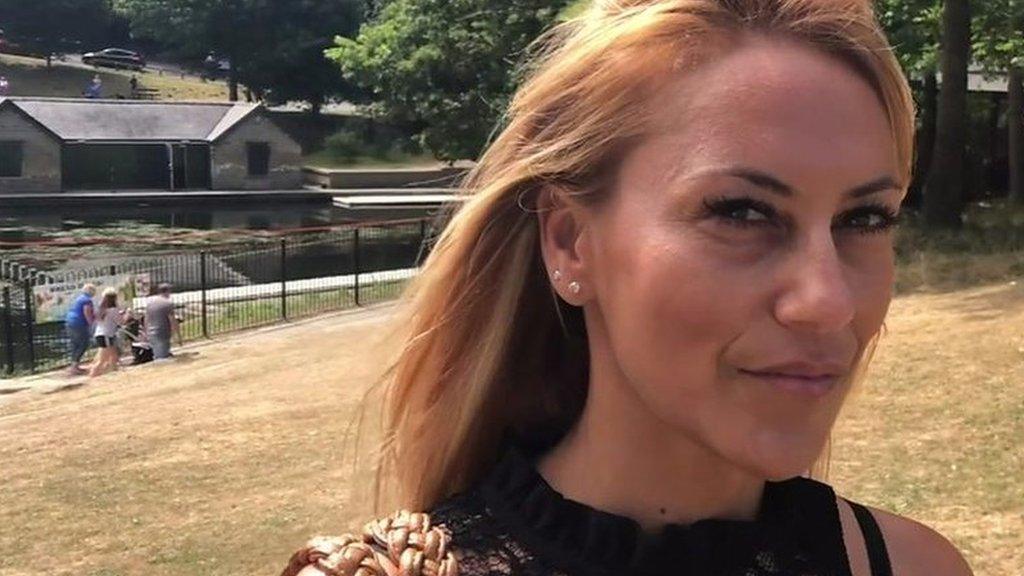Adenomyosis: NHS failing women, health ambassador says
- Published
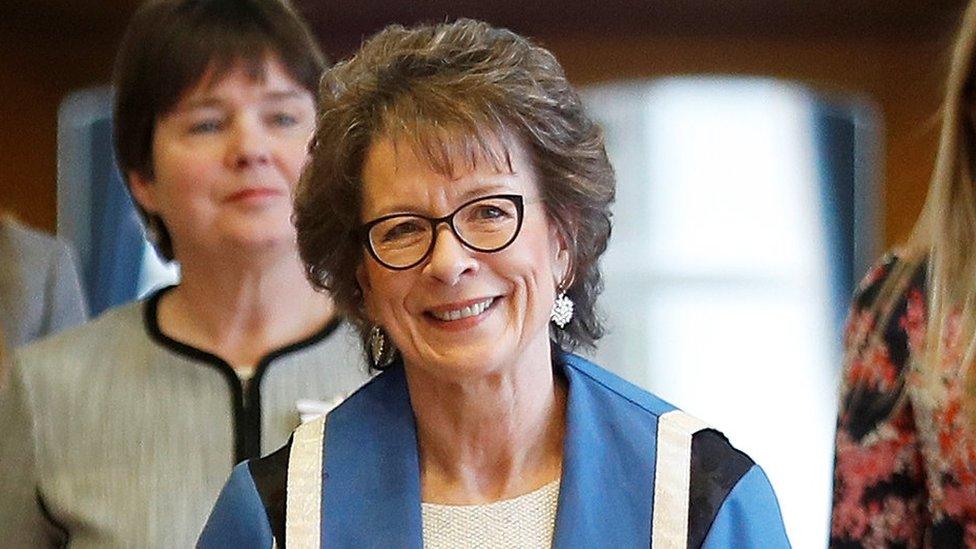
Dame Lesley Regan is the government's women's health ambassador
The NHS in England is "failing women", the government's women's health ambassador has said.
Prof Dame Lesley Regan, appointed to support the Women's Health Strategy implementation, was speaking to BBC Radio 5 Live's Naga Munchetty.
Last month, Munchetty, 48, revealed she had been diagnosed with the womb condition adenomyosis, after waiting years in severe pain.
Dame Lesley said she wanted women to be able to self-refer to specialists.
Women and girls should not have to seek "permission [to] go and have your crippling menstrual pain sorted out", she said.
Adenomyosis, when the endometrium, womb lining, grows within the womb's muscular wall, can cause:
heavy and painful periods
stomach bloating
pain during sex
Contraceptives can help - but some women need a hysterectomy, womb removal, to completely relieve pain.
Naga Munchetty reveals she has been living with menstrual pain for decades
Dame Lesley, a professor of obstetrics and gynaecology, told Munchetty it was necessary to "get out of the frame of mind of women going to healthcare professionals who then do something to them".
It was "unacceptable" the NHS website had no dedicated adenomyosis page - and this it would be rectified.
NHS Scotland does have its own dedicated page, external, as do several NHS hospital trusts.
Dame Lesley said: "2022 was the year of the menopause... 2023 [should be] menstrual-health awareness year.
"Make it just as common to talk about your period problems and knowing where to get help.
"Most girls and women will have 12 periods a year for 40 years of their life and that's an awful lot of suffering that doesn't need to necessarily be there, so I really think this has to be a common talking point, something that everybody understands."
'Delivering results'
An NHS official said: "The NHS takes women's health very seriously and, in line with [National Institute for Health and Care Excellence] guidance, we provide a wide range of treatments and support for many conditions, including adenomyosis. And we will be working with the Department of Health and Social Care to look at how we can do more through the Women's Health Strategy.
"GPs should keep up to date with the latest NICE guidance on this condition so a speedy diagnosis and appropriate treatments can be carried out."
A Department of Health and Social Care official said the government was "working hard" with Dame Lesley on improving women's lives through the Women's Health Strategy.
"This is delivering results - we've reduced the cost of hormone-replacement therapy, invested £25m to accelerate the development of women's health hubs and are supporting women's reproductive health in the workplace," the official said.
"Our strategy commits to creating a women's health area on the NHS website and adding additional pages about conditions like adenomyosis.
"We're also reducing waiting times and improving patient experience in gynaecology and urogynaecology."
In May, Munchetty told listeners: "Right now, as I sit here talking to you, I am in pain - constant, nagging pain, in my uterus, around my pelvis, sometimes it runs down my thighs, and I'll have some level of pain for the entire show and for the rest of the day, until I go to sleep," she said.
One in 10 women is thought to have adenomyosis.
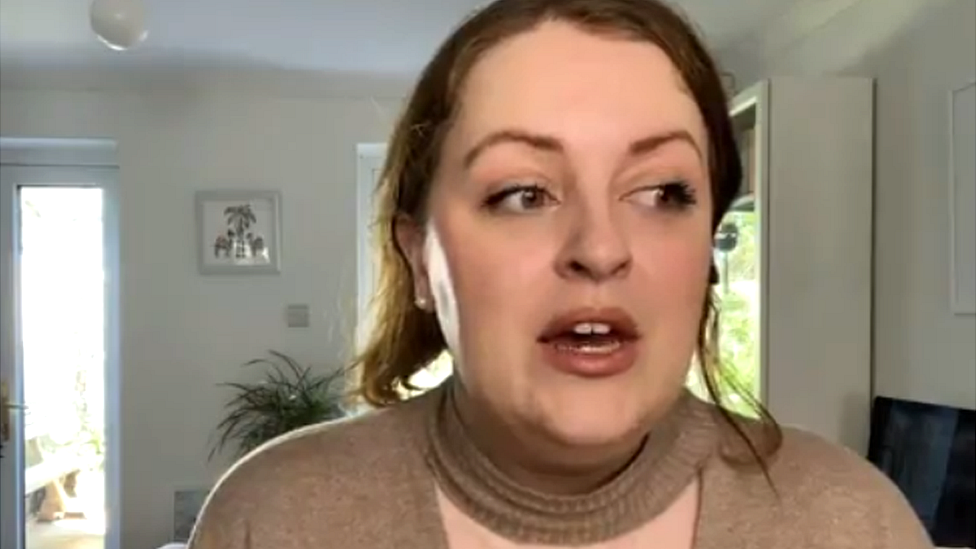
Jen decided to have a hysterectomy, after years of pain
Munchetty has not committed to having a hysterectomy yet - but Jen Moore, 34, from Cambridge, who has just had one, told her it had been "an emotional rollercoaster", becoming unable to bear children, but "the right decision".
Have you been affected by the issues raised in this story? Help and support is available via BBC Action Line.
Related topics
- Published22 May 2023
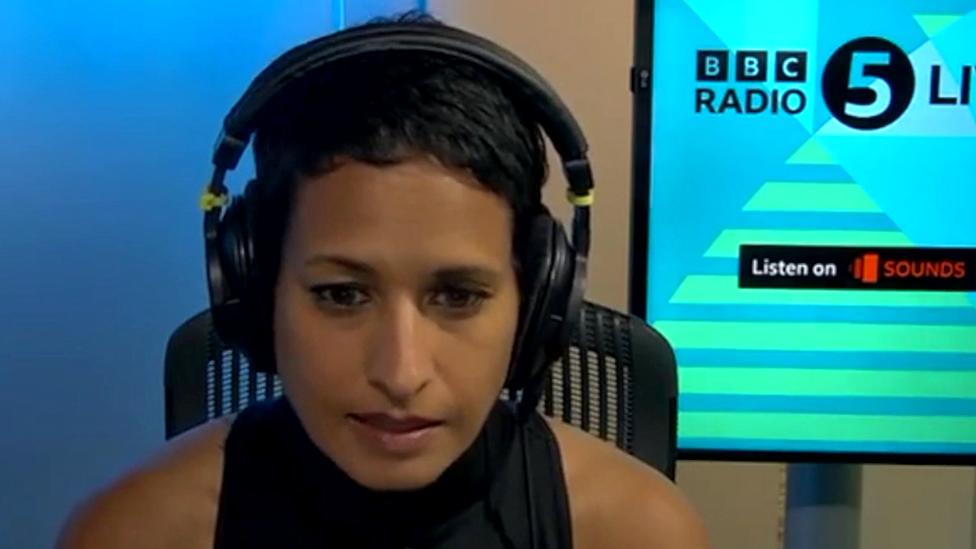
- Published14 December 2021
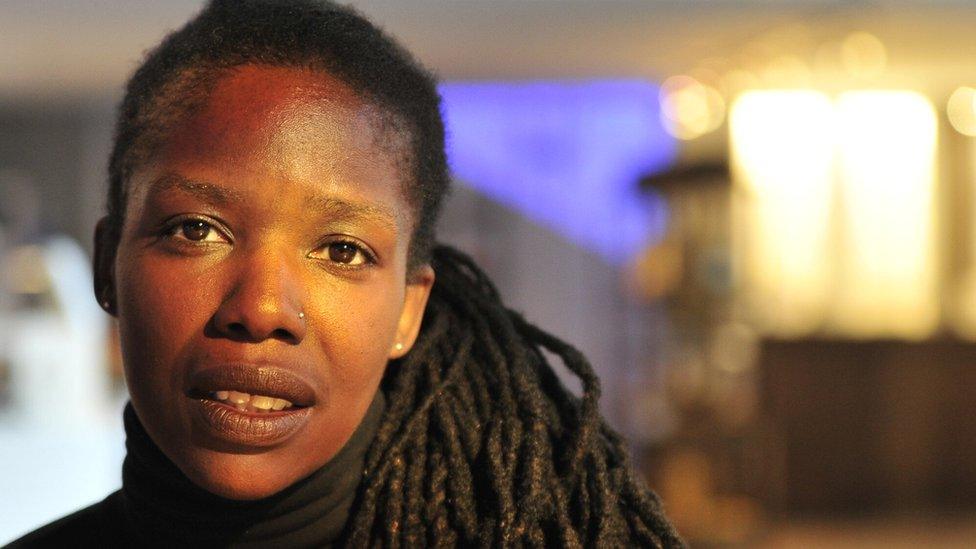
- Published17 July 2018
